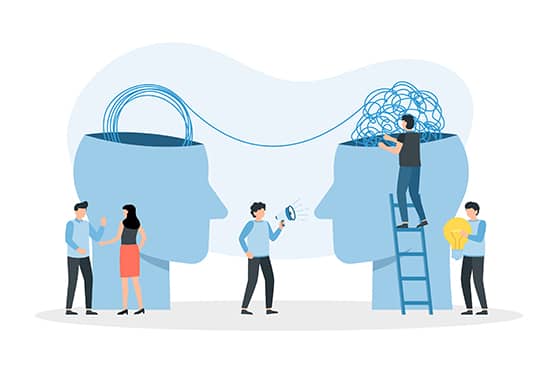Language Toolkit: 3 things to keep in mind to communicate with empathy


In his famous book The 7 Habits of Highly Effective People, Stephen Covey gives an example of how a well-meaning person promptly takes off his own glasses and hands them over to another person with myopia. Since these glasses had helped him get crystal clear vision, he was absolutely sure that they would have the same effect on anyone else with myopia. A generous act indeed, full of sincerity and good intent. But completely ineffective!
It is common sense that one person’s vision correction glasses don’t work for another. It is the same with empathy. Using one’s own perspective to empathise with someone else just doesn’t happen. According to the Cambridge dictionary, empathy is “the ability to share someone else’s feelings or experiences by imagining what it would be like to be in that person’s situation”. Empathy is about shifting perspective.
When I was down with COVID-19 during the third wave, many messages came in. I could blame it on my ill health, but I was rather irascible during those days and got put off by many of the messages. I have no doubt that all the messages came from a place of concern, but the words triggered me. Some of the messages read as follows – “Take care. Who on earth gave it to you?” (My reaction – how does witch-hunting help solve things?); “Avoid heavy drugs, they have side effects.” (My reaction - are you a doctor? Do you know my symptoms? Can you treat me?), “Don’t forget to gargle thrice a day!” (My reaction - are you my mother?)
While having one’s heart in the right place is where empathy begins, choosing context-appropriate language makes empathy come into force. That’s where we can delve into our Language Toolkit.
Three Essentials while using ‘the language of empathy’ are:
Empathy is needed most in situations where one needs to reach out to a person who is in an uncomfortable position, be it a new student in class, a new member of the team, a person who is less proficient in the language, a person from a different culture – or any other situation where the person may be grappling with challenges. As Maya Angelou (the American thought leader) said, “I’ve learned that people will forget what you said, people will forget what you did, but people will never forget how you made them feel.”
Dolon Gupta is a consultant specialising in Communication, Culture and Soft Skills; she is the co-Founder of Business Communication Facilitators Association of India (BCFAI)